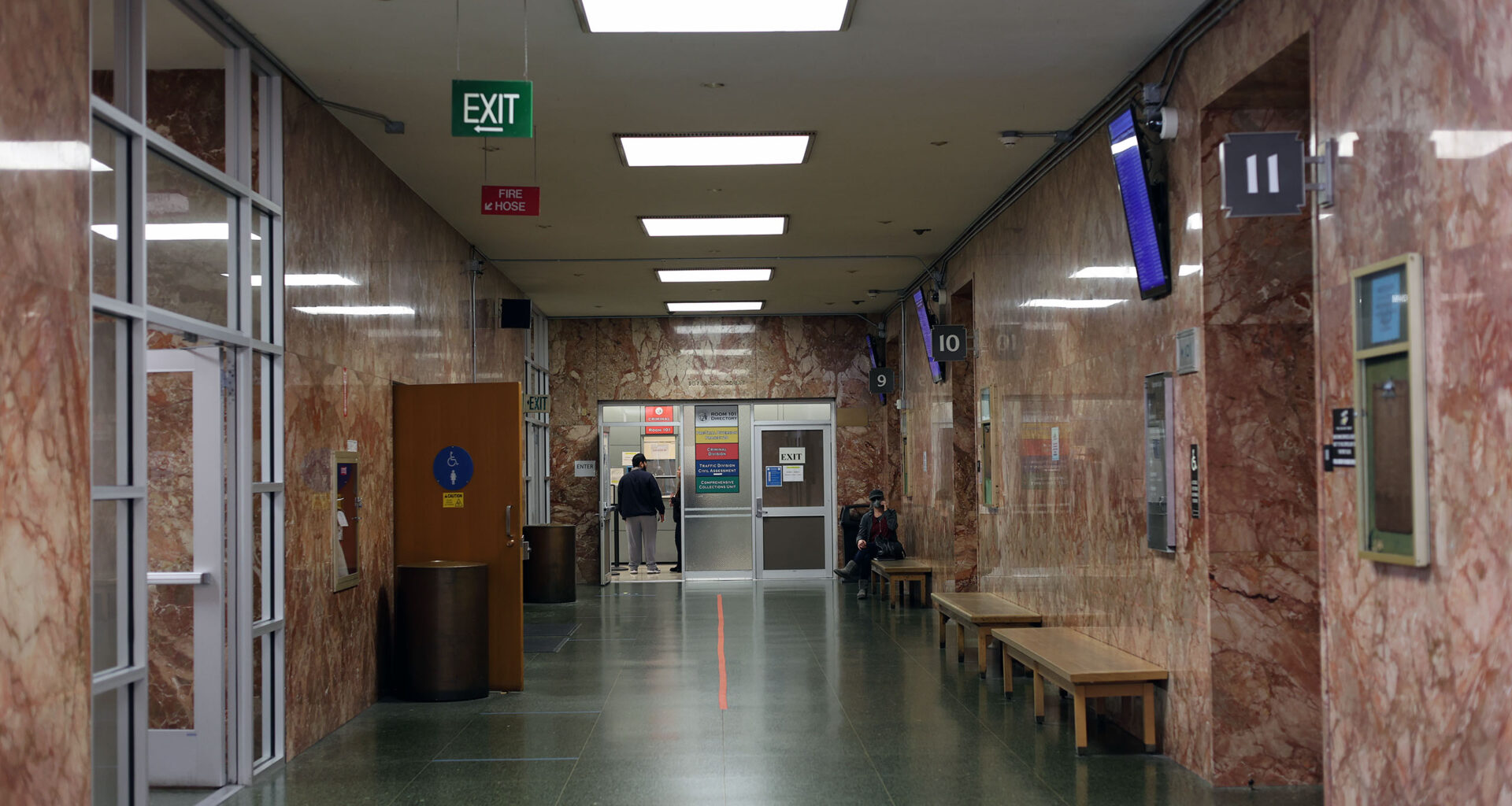San Francisco criminal court clerks issued a “cry for help” on Monday, threatening to strike for three days if the court did not respond to their demands for more staff and better training to handle an influx of criminal cases.
After eleven hours of negotiation, the clerks’ union and the court’s bargaining team came to a tentative agreement on Tuesday night. The strike was called off less than a day before a picket line was set to form outside San Francisco’s Hall of Justice on Wednesday morning.
But the agreement was made on “terms that don’t really address the issues,” said Rob Borders, a union organizer. He said that the soaring caseloads would continue to directly impact about 40 courtroom clerks.
Clerks were promised a two percent annual raise, Borders said, which is less than the annual three percent U.S. inflation rate. The court’s management agreed to have “ongoing meetings” about clerks’ overwhelming workloads, but made no guarantees.
Early last week, the union filed unfair labor practice charges against the court. As clerks are forced to take on more cases, Borders said it is “only a matter of time before something really bad happens.”
Clerks’ duties include managing court records, processing documents filed in court, and preparing court orders to protect victims or arrest defendants who did not appear for their hearings.
This year, criminal courtroom clerks have gone from processing 20 cases a day to 50, Borders estimated. The “historic” number of cases, Borders warned, has led to delays and higher error rates. An error, he said, can mean someone getting arrested — or released from custody when they shouldn’t be.
Borders, who has been a San Francisco criminal clerk since 2023, said he started to see cases rise after Mayor Daniel Lurie took office and vowed to address “qualify of life” issues like vandalism, drug possession, or sleeping on the street.
District Attorney Brooke Jenkins has charged more such cases in her three years in office than her predecessor.
Heavy caseloads may now delay people arrested for such crimes and sent to substance-use treatment from getting into facilities. San Francisco has a shortage of treatment beds. Availability can often last only a day, or a few hours.
“If the paperwork isn’t right they miss that bed,” Borders said. “Every day that they’re sitting there in jail waiting is another day their treatment is delayed.”
Criminal cases must be heard within set time limits. In order to ensure that all the cases are started on time, multiple trials are now being heard simultaneously at different times of the day in every available courtroom, Borders added.
Meanwhile, clerks said they were forced to work late without additional pay. They’ve been assigned to courtrooms that see cases they said they weren’t trained to handle, without so much as a reference guide. Taking a two-week long vacation, Borders said, has become “nearly impossible.”
Union organizers said they recommended management bring in clerks from the city’s civil courthouse, where caseloads are more manageable. The court’s administration, they said, rejected all their proposed solutions.
According to Borders, the court’s CEO, Brandon Riley, rarely visits the criminal court at 850 Bryant, which Borders described as a “crumbling rat infested death trap” of a building compared to the civil courthouse.
A spokesperson for the court did not immediately respond to request for comment about the tentative agreement.
“We want justice to be served, whether [people are] convicted or exonerated,” Borders said. “Incompetent” management is “making it hard for us to do that.”

